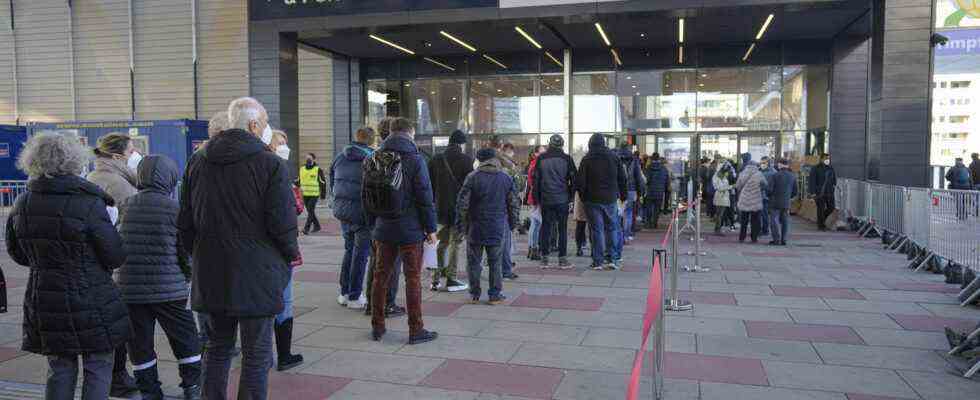report
Status: 03.02.2022 11:56 a.m
Austria wants to be the first EU country to introduce compulsory corona vaccination for adults. But it is questionable whether the new law will increase vaccination willingness. The municipality of Ybbsitz has been splitting the issue for a long time.
Ybbsitz in Lower Austria, a small community with 3,300 inhabitants about an hour and a half drive west of Vienna. Everyone knows almost everyone here. The vaccination status is not a big secret either. Only a little more than half of the inhabitants have been vaccinated here so far.
Sabine, an office worker, is walking down Marktstrasse in the thick snow. She thinks compulsory vaccination is right: Basically, she is in favor of it because she doesn’t understand why so few people get vaccinated: “I think this is a necessary step so that we can finally get all the measures off the table.”
Poor vaccination rate
She can understand the opponents of vaccination, she says. Because much of what the government in Vienna has decided in terms of corona policy is contradictory. “I know the camps are divided, but that’s not just the case in the community.” Unfortunately, it is the same across the whole of Austria.
Mayor Gerhard Lueger also has to deal with this. He has been on the municipal council since 1995 and knows that after two years of the pandemic, the community is no longer as close as it used to be. When asked what compulsory vaccination means for his community, the mayor refers to the “unfortunately very poor vaccination rate of currently 57 percent.”
Vaccination opponents appeal against fines
That is far more difficult for such a congregation, because of course the division is far greater here. Because the proportion of non-vaccinated people is relatively high. Vaccination options are available in town: Of the two doctors, however, only one doctor offers vaccinations, the second doctor refuses. Whether this may have had an impact on vaccination decisions in the community remains to be seen.
The district administrations are responsible for collecting fines of up to 3,600 euros from those who do not want to be vaccinated (they roughly correspond to the district offices in Germany). Mayor Lueger says there would be a “huge administrative burden” because many opponents of vaccination would object.
Low impact on vaccination rate?
The new law will only have a very limited impact on the vaccination rate. Those who had prepared themselves not to be vaccinated “for whatever reason” would be difficult to convince to take the step. A certain percentage will comply with the obligation to vaccinate, “but I don’t expect a large wave of willingness to vaccinate.”
Especially since the law expressly states that there is no conversion of “the fine into imprisonment” if the fine cannot be collected.
He doesn’t have to worry too much about that, says 18-year-old Tobias, who comes out of the supermarket in Ybbsitz with his friends: He’s been vaccinated three times, “and I think everyone should decide how they want to.” For him it has advantages, it’s just a lot easier and saves “a lot.”
Anti-vaccination party at 17 percent
How polarizing the new vaccination law is can be seen in neighboring Waidhofen an der Ybbs: In the municipal elections last weekend, the anti-vaccination party MFG (People, Freedom, Basic Rights) won 17 percent of the votes.
He couldn’t understand that, says an 80-year-old pensioner in Waidhofen, who only wants to reveal his first name, Karl. As a citizen, you not only have rights, but also obligations and now also the obligation to vaccinate: “I would like us to take it away again. The government did not want that either. That’s just the way it is. And it’s sad that they people block themselves like that.”
“I don’t expect the big wave of willingness to vaccinate”
Clemens Verenkotte, ARD Vienna, February 3, 2022 10:51 a.m

